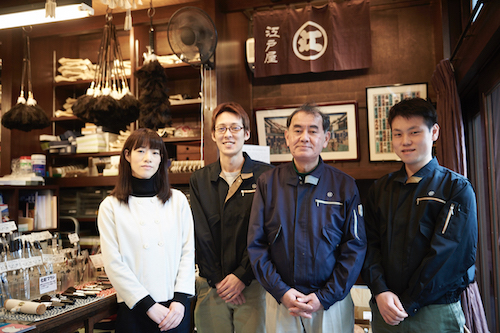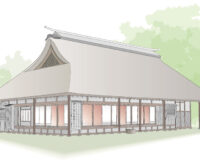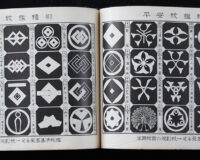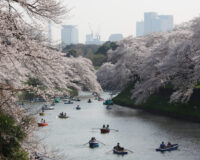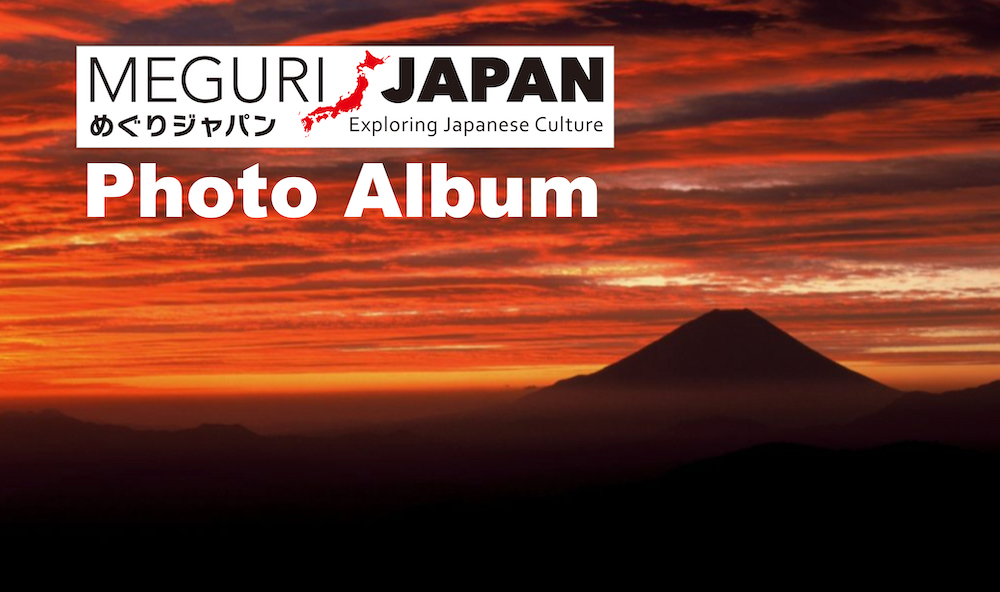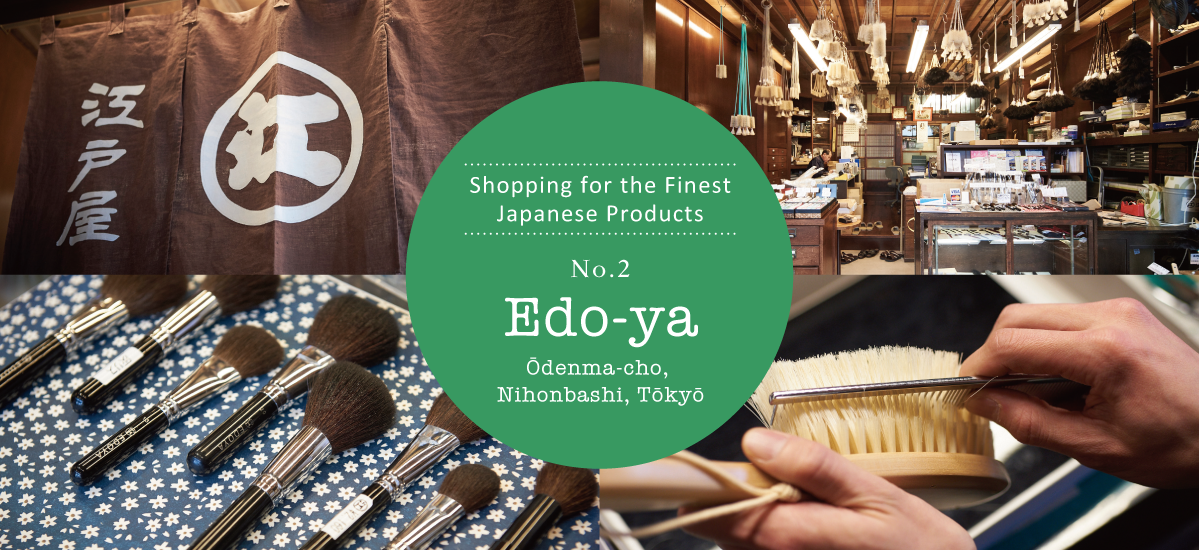
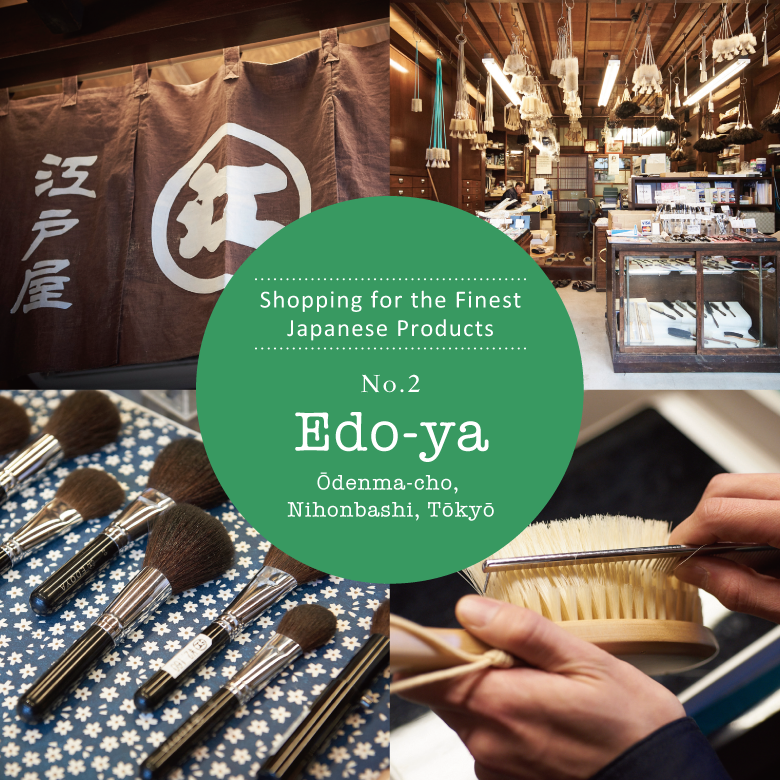
Nihonbashi, in the heart of Tōkyō, thrived throughout the Edo Period (1603-1868) as a town of artisans and tradespeople providing goods and services to the shogunate government. One store that has been cherished by locals ever since is the 300 year-old Edo-ya, supplier of quality brushes to both the local artisans and to the Tokugawa family. In fact, the name ‘Edo-ya’ was bestowed upon the business in 1718 by the eighth Tokugawa shōgun, Yoshimune. Edo-ya is a ton’ya, a traditional retailer that deals directly with the artisans who make the products.
Text : 水口まり Mari Minakuchi / Photos : 菅原孝司 Koji Sugawara / English Version : Judy Evans
Keyword : Traditional Goods / Handmade Brushes / Shopping / Shopping for the Finest Japanese Products Series / Famous Shops / Nihonbashi / Edo-ya
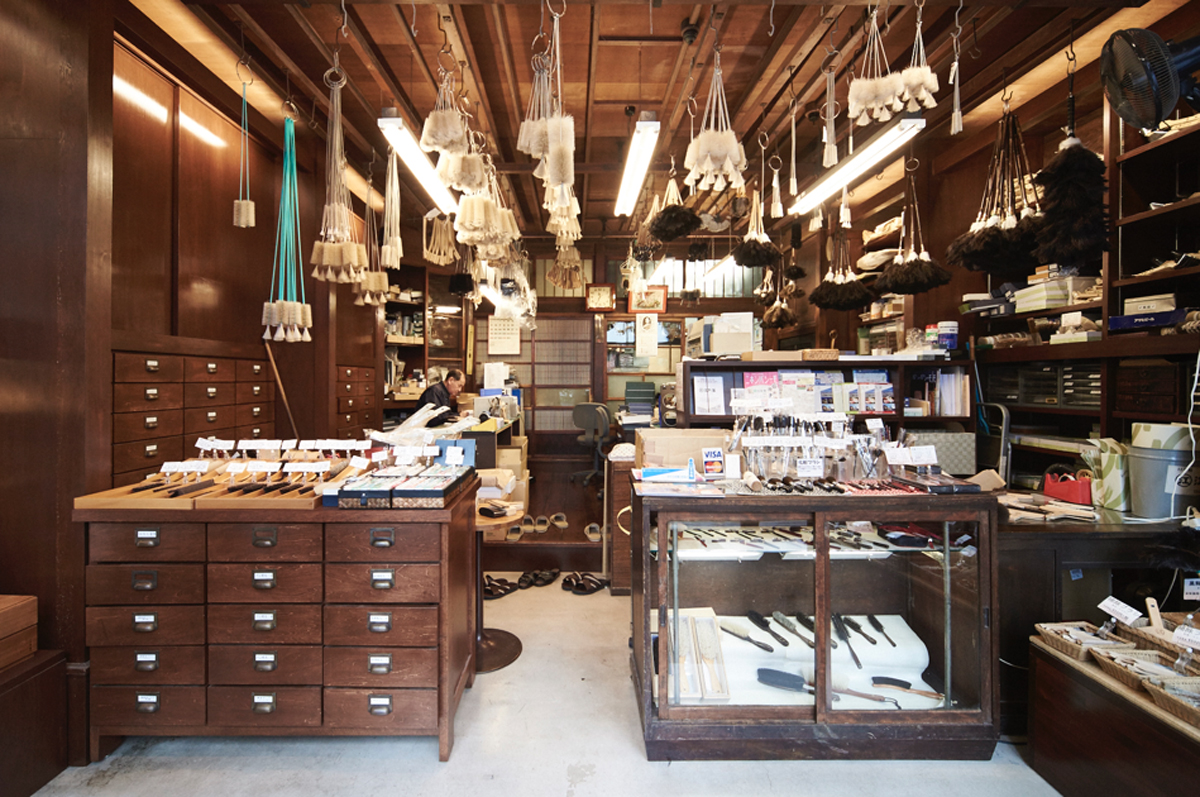
Stepping into this tiny shop is like walking into a museum, yet Edo-ya brushes – and there are plenty of them, from paint brushes to toothbrushes, scrubbing brushes to make-up brushes – are popular with people of all ages here in Japan. Their quality clothes brushes and shoe brushes are even sold by select retailers around the world.
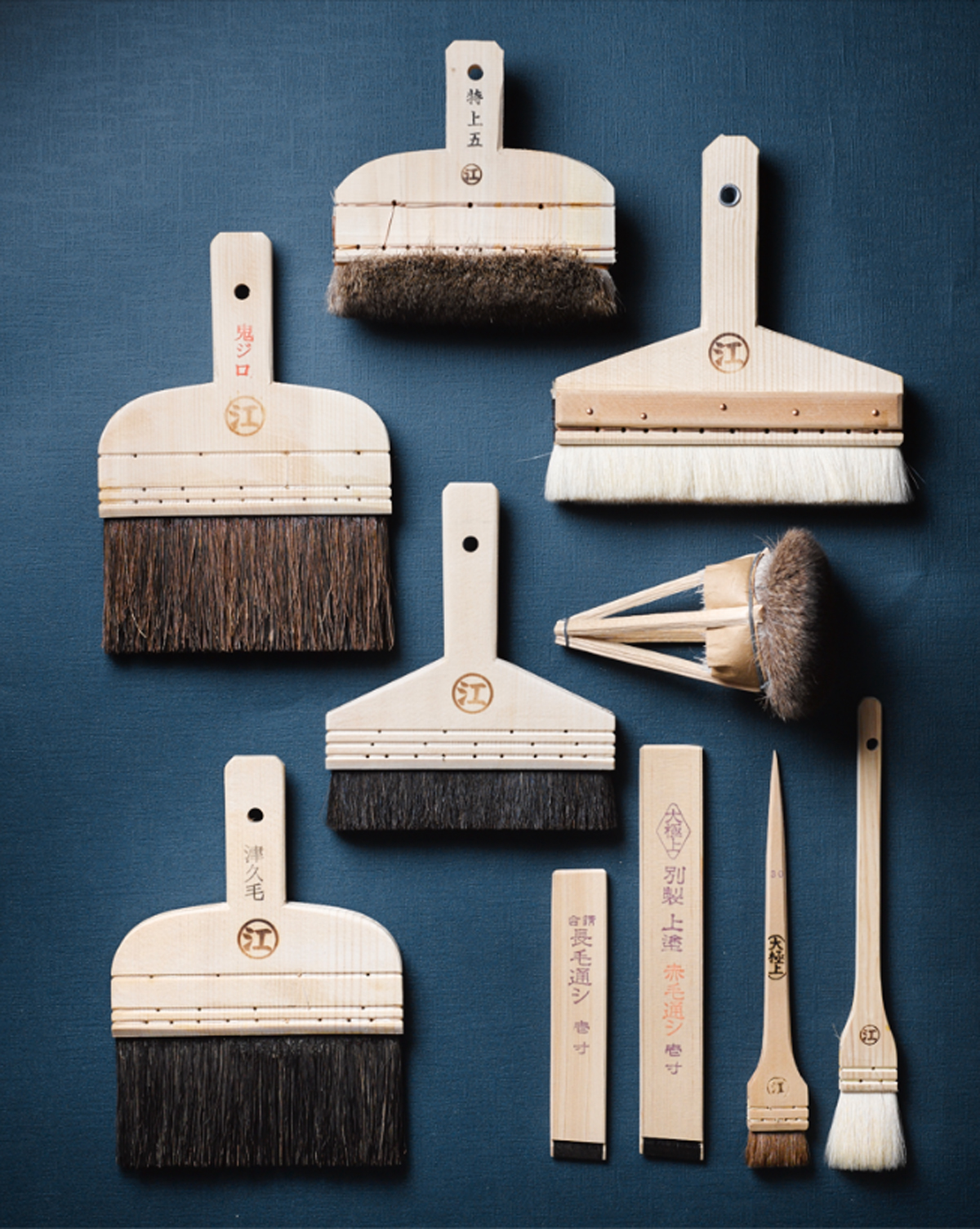
Edo-ya and its craftspeople have developed a variety of new products in response to customer requests. One such new product is a long, thin brush for cleaning re-usable drinking straws. Another, a custom-made back-scratching brush. The number of new products developed in response to customer requests is now around 3,000, some of them so specialised, there is no way of telling what their purpose is just from their appearance.
Likewise, Edo-ya’s classic products also include brushes of all shapes and sizes, utilising a variety of materials and manufacturing methods. Take the humble shoe brush, for example, which is made of different materials depending on the end use. We found goat-hair brushes for delicate shoes, horse-hair brushes for brushing dust off shoes and copper wire brushes for getting dirt off suede, to name a few. While some of the brushes might look similar to each other, once you handle them you can really feel the difference.
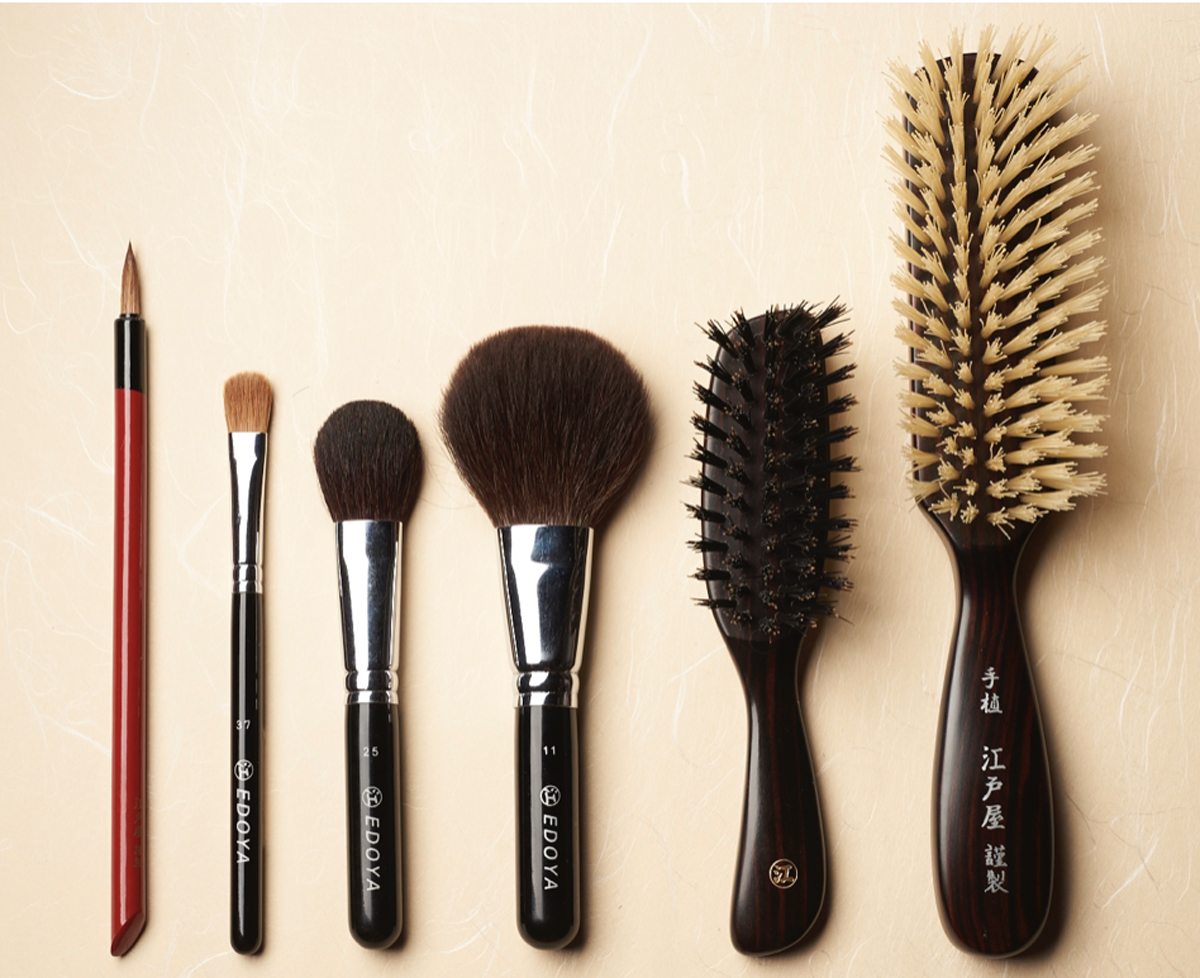
Hair brushes are one of Edo-ya’s particularly sought-after products and there is quite a range on display. Traditionally-made hair brushes, with each bristle painstakingly inserted by hand, sit alongside lower-priced machine-manufactured hair brushes.
Contrary to any expectation that such a venerable store would showcase only handmade items, Hiroshi Toda, the sales manager, had this to say: “There’s a tendency to think that handmade is best, but for us it’s not a question of whether something is handmade or machine-made, but whether it’s well made. When it comes to our products, quality is everything.”
This determination to procure top-quality products for their customers, whatever the price range, is surely what keeps people coming back to Edo-ya.
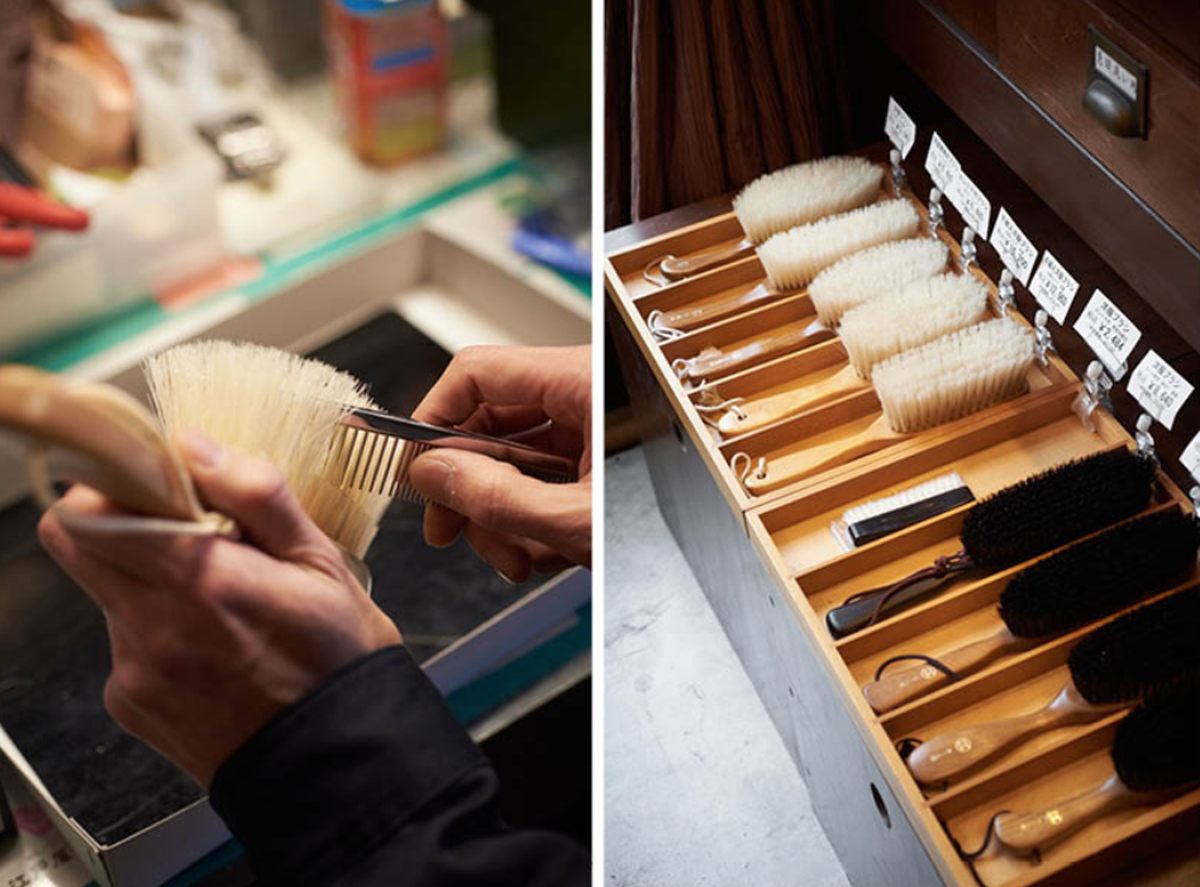
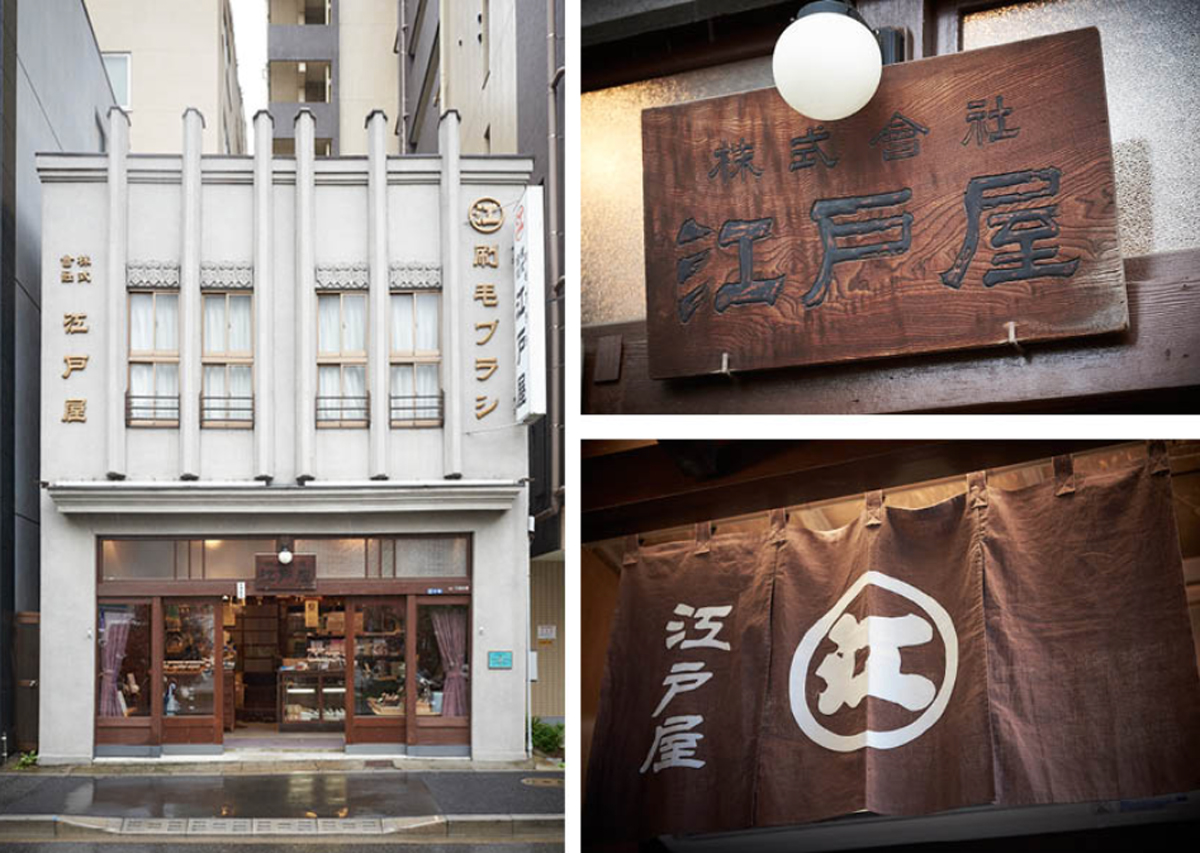
[Edo-ya]
Address: 2-16 Ōdenma-cho, Nihonbashi, Chūo-ku, Tōkyō
Phone: 03-3664-5671 (in Japanese)
Closed: Saturdays, Sundays and public holidays.
Nearest station: Kodenma-cho Station on the Tōkyō Metro Hibiya Subway Line.
Web: http://www.nihonbashi-edoya.co.jp/ (in Japanese)
